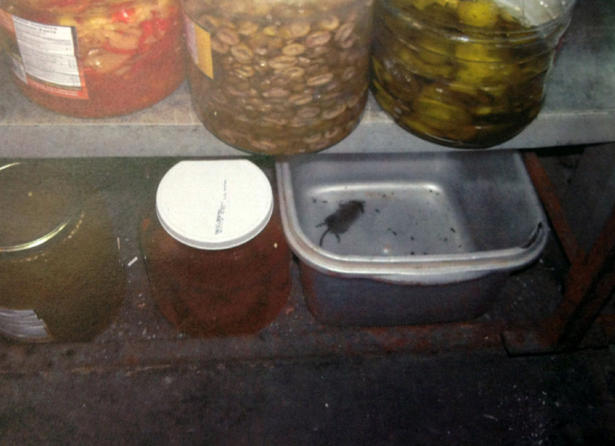As a connoisseur of food truck fare I’m a fan of Toronto’s change to allow for the sale of foods other than hot dogs, including a bunch of lower-risk prepackaged items.
Food trucks, like shared use kitchens are hot – less infrastructure investment is needed for an entrepreneur to get into the market – but with that benefit comes the trade-off of not having a big or suitable facility to make complicated meals. Must haves for most hot food preparation carts include digital tip-sensitive thermometers, somewhere to wash hands and a decent storage cooler or refrigerator. Someone who knows something about food safety also helps. 
Many jurisdictions require carts or trucks to be brought to a central facility for an annual inspection which could just include verification that the cart temperature control and handwashing tools work. Sometimes inspectors will require a simulated food preparation, although it is difficult to recreate what an operator will encounter if parked outside a row of bars at last call.
Sometimes the trucks don’t show up for those inspections.
Toronto Public Health is dealing with some hot dog cart excitement. According to the Toronto Star,
The owner of a fleet of hotdog carts cited for multiple health and safety violations — including a cart strewn with mouse droppings and dead rodents — has been allowed to keep operating.
Elisaveta Moskova has been selling hotdogs and sausages for almost 20 years and with her husband has held up to a dozen of the licences required to own and operate carts during that time. The city recently tried to shut her down; Toronto’s civilian licensing tribunal has given her another chance.
Every cart is inspected once a year by the city. The results of recent inspections for fixed carts are posted on the city’s DineSafe website.Star research has found that Moskova’s violations are among more than 55 carts in Toronto that have received warnings in the past four years. Moskova has the highest number of carts with infractions on that list.
Last November, city inspectors found five dead mice and more than 150 mouse droppings in one of her carts operated at Simcoe St. and Queen St. W. That cart, which the tribunal agreed was a “horrific health situation,” was shut down. Moskova’s vehicle licence for the cart and the location permit — a separate city permit owners of fixed carts require to operate at a specific location — were suspended.
She blamed overzealous inspectors for the number of tickets and said competitors also made false complaints about her business.
In a letter to the tribunal, the city’s Municipal Licensing and Standards Division called the problems at the carts “crucial and significant health violations,” and stated that allowing Moskova to remain in business could pose “a significant risk to public health and safety.”
The tribunal determined that only two carts were bad enough to justify punishment. The licence for the Simcoe cart was denied and a second licence was put on probation.
